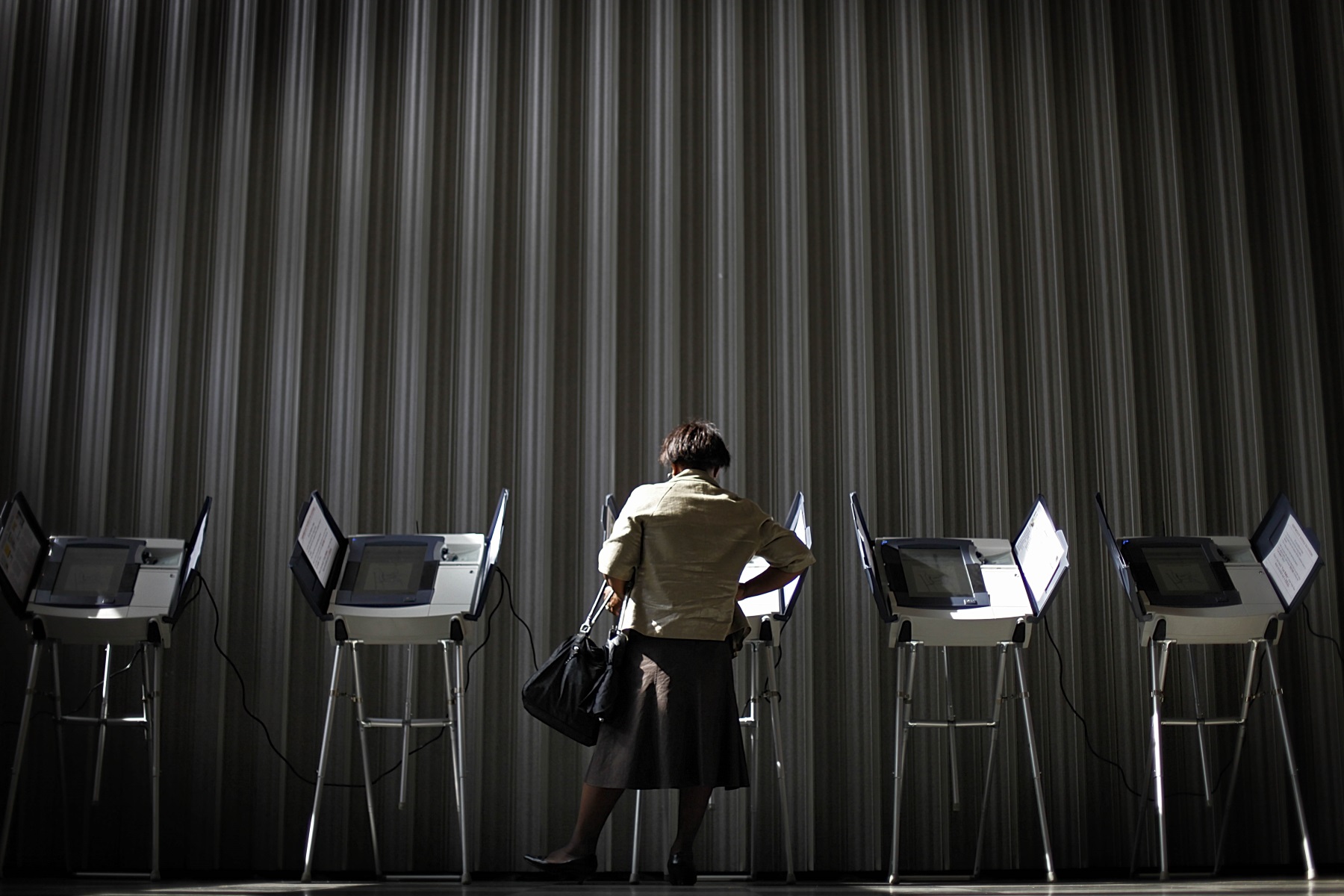Updated at 7:15 a.m. Friday
A federal judge says Georgia will not be compelled to use hand-marked paper ballots for elections this fall.
Voting-rights groups had sued the state, seeking an immediate end to the use of outdated touchscreen voting devices.
But U.S. District Judge Amy Totenberg ruled Thursday that it would be “unwise to require the state to implement an intermediate hand-marked paper ballot system” for 2019 elections.
Totenberg also ruled that Georgia’s current voting machines and election management software cannot be used past 2019.
“The long and twisting saga of Georgia’s non-auditable DRE/GEMS voting system – running on software of almost two decades vintage with well-known flaws and vulnerabilities and limited cybersecurity – is finally headed towards its conclusion,” Totenberg wrote.
Georgia says it will have its new Dominion voting system in place by the March 2020 primaries, something that Totenberg calls “an essential step forward.”
However, in her ruling, Totenberg writes that the court has “real reason for concern regarding the state’s capacity for effectively handling the mammoth undertaking” of the new voter system rollout.
In the event that it’s not ready, she ordered the state to have a backup plan that uses hand-marked paper ballots.
“While we are still reviewing the order, we are pleased the Court endorsed the policy decisions of the state’s elected officials to move to a new paper ballot voting system in time for the 2020 elections while not disrupting 2019 elections,” said Secretary of State Brad Raffensperger in a written statement.
David Cross represented a group of voters in the lawsuit against the state. He claims that it’s the state’s “ineptitude” that prevented Judge Totenberg from mandating an immediate switch to hand-marked paper ballots.
He foresees future challenges to Georgia’s new voting system.
“For whatever reason, they adopted a system their own expert told them not to adopt. And they’ve never explained why,” said Cross. “So we will at some point be challenging that system as well, unfortunately.”
Judge Totenberg also ordered the state to present a plan by Jan. 3 to address issues with the state’s voter registration database that have sometimes led to voters not appearing in electronic pollbooks, getting the wrong ballot or being assigned to the wrong precinct.









